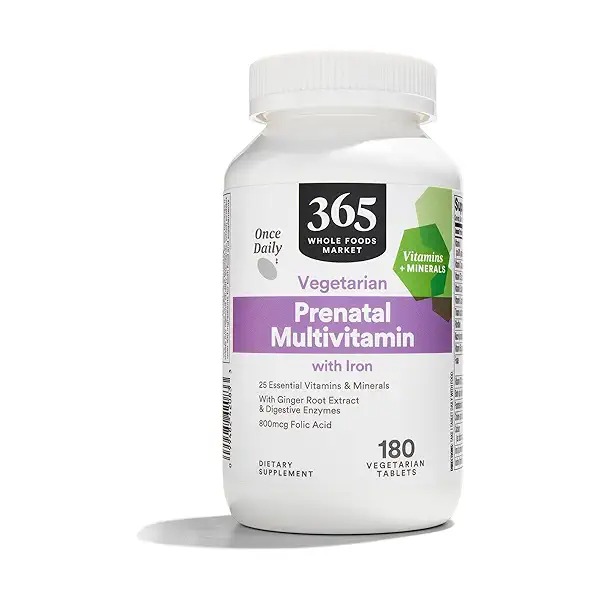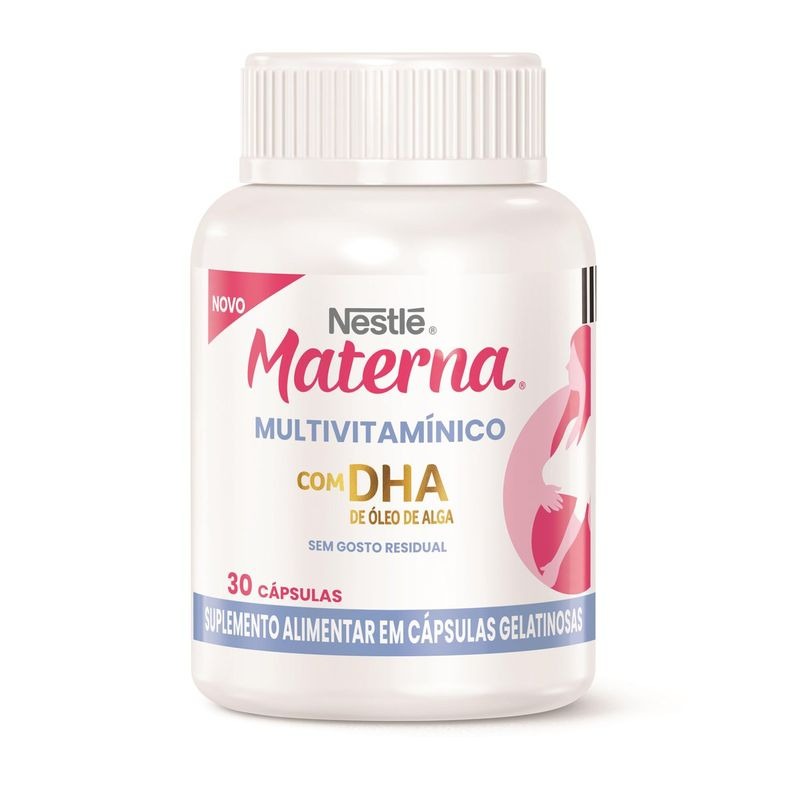
Prenatal vitamins are essential for the health of both the expecting mother and the developing baby. Selecting the best prenatal vitamins is crucial to ensure that both receive the necessary nutrients for optimal health. These vitamins provide key nutrients that might not be sufficiently consumed through diet alone, making them a fundamental part of prenatal care.
Importance of Prenatal Vitamins
Prenatal vitamins are essential for expecting mothers. They ensure the mother and baby get needed nutrients. These vitamins help fill gaps in a mother’s diet. During pregnancy, the body‘s nutritional needs change.
Key Nutrients Provided by Prenatal Vitamins
Prenatal vitamins offer key nutrients. Folic acid helps prevent birth defects in the baby’s brain and spine. Iron supports blood production and helps avoid anemia. Calcium and vitamin D strengthen the baby’s bones and teeth. Omega-3 acids aid in the baby’s brain development. All these are crucial for a healthy pregnancy.
Choosing the Right Prenatal Vitamin
Choosing the right prenatal vitamin is key during pregnancy. It ensures you and your baby get essential nutrients. Different brands and types of vitamins are available. Your lifestyle and health needs should guide your choice.
Factors to Consider When Selecting Prenatal Vitamins
When choosing prenatal vitamins, consider these factors:
- Nutrient Composition: Look for folic acid, iron, calcium, vitamin D, and omega-3s.
- Form: Pills, gummies, and liquids are available. Pick what you prefer.
- Brand Quality: Choose vitamins from reputable brands. Check for safety certifications.
- Dietary Restrictions: If you are vegan or allergic, find suitable vitamin options.
- Healthcare Provider’s Advice: Always ask a doctor before choosing a vitamin.
These points help you find the best fit for your needs.
Recommended Prenatal Vitamins in 2024
In 2024, several prenatal vitamins are highly recommended. Look for these in stores or online:
- Ritual: These are good for those on a vegan diet.
- Perelel: They offer different vitamins for each pregnancy stage.
- Thorne: It’s known for high-quality, comprehensive nutrients.
- Fullwell: Good for overall maternal health.
- Vital Nutrients: These are often suggested by healthcare providers.
Each recommended vitamin offers unique benefits. Compare them based on your health needs. Remember to discuss with your healthcare provider before taking any supplements.
When to Start Taking Prenatal Vitamins

Prenatal vitamins prepare your body for pregnancy. They’re key for a healthy mother and baby. Start taking them early.
Optimal Timing for Starting Prenatal Vitamins
The best time to start prenatal vitamins is before pregnancy. Aim for at least one month before trying to get pregnant. This early start gives your body essential nutrients. It helps prevent birth defects like those in the brain and spine. Folic acid is a key nutrient needed early for the baby’s neural tube development. Starting early makes sure you have enough of this critical vitamin.
Essential Nutrients for Pregnancy
Ensuring a healthy pregnancy involves more than just regular doctor visits. It demands specific nutrients for the baby’s growth and the mother’s health. Key elements like folic acid, iron, and omega-3 fatty acids must be a part of an expectant mother’s diet.
Role of Folic Acid, Iron, and Omega-3
Folic acid is crucial. It helps prevent serious birth defects of the baby’s brain and spine. Prenatal vitamins are important to have enough of this nutrient. Iron keeps blood healthy for both mother and baby. It avoids anemia and supports the fetus’s growth. Omega-3 fatty acids are vital too. They boost the baby’s brain and eye development.
Taking prenatal vitamins with these ingredients is highly advised. Look for at least 400 mcg of folic acid and iron as recommended by your doctor. For omega-3s, eating fish or taking supplements if you don’t eat fish is good.
Importance of Vitamin D and Calcium during Pregnancy
Vitamin D and calcium are also key. They make sure the baby has strong bones and teeth. Mothers need enough of these nutrients to keep their own bones strong too.
Prenatal vitamins should have vitamin D and calcium. Eat foods like milk, cheese, and yogurt for extra calcium. Step outside to get some sunshine for natural vitamin D. If you don’t get much sun, consider a supplement as advised by a doctor.
Every woman and pregnancy is unique. It’s best to talk with a healthcare provider. They can suggest the right prenatal vitamins for you based on these nutrients.
Common Side Effects of Prenatal Vitamins
While prenatal vitamins are vital for pregnancy health, they can sometimes cause side effects. The most common issues are digestive, like constipation and nausea. The iron in these supplements is often the reason for these discomforts. But don’t worry, there are ways to manage these issues and keep taking your vitamins comfortably.
Managing Digestive Issues and Other Discomforts
To tackle constipation, start with simple steps:
- Stay Hydrated: Drink plenty of water throughout the day.
- Eat Fiber-Rich Foods: Include more fruits, vegetables, and whole grains in your diet.
- Keep Moving: Regular exercise can help keep your digestive system active.
If nausea is a problem, try these tips:
- Smaller Doses: Take your vitamins with food or in smaller amounts throughout the day.
- Time It Right: Take vitamins when nausea is least likely to hit, like bedtime.
- Ginger: Some find ginger tea or chews help reduce nausea.
For belly pain or other discomforts, here’s what can help:
- Consult a Doctor: They might suggest different vitamin formulas.
- Adjust Supplement Types: A switch to gummies or liquid vitamins might be easier on your stomach.
Remember, it’s important to talk to your healthcare provider before making any changes. They understand your health needs best and can guide you to the right choices.
Role of Diet in Conjunction with Prenatal Vitamins

A balanced diet plays a critical role during pregnancy. It works alongside prenatal vitamins to ensure comprehensive nutrition. This approach supports optimal fetal development and maintains maternal health.
Balancing Diet and Vitamin Intake
While prenatal vitamins supply essential nutrients, diet provides the bulk of daily nutrition. Here’s how to balance both:
- Eat a Variety of Foods: Consume fruits, vegetables, grains, protein sources, and dairy. This ensures a range of nutrients.
- Know What to Avoid: Stay away from high-mercury fish and unpasteurized cheeses. Also, limit caffeine intake.
- Complement with Prenatal Vitamins: Ensure vitamins include folic acid, iron, calcium, and vitamin D. They fill any nutritional gaps from your diet.
- Stay Hydrated: Drinking enough water aids digestion and nutrient absorption.
Together, a thoughtful diet and appropriate prenatal vitamin intake pave the way for a healthy pregnancy.
Consultation and Tailored Vitamin Choices

Prenatal vitamins are crucial for a healthy pregnancy. However, not all prenatal vitamins suit everyone. This section explains why consultations with health care providers are crucial. It also explores how best to tailor prenatal vitamin choices to individual health needs.
Discussing with Health Care Providers
Starting a prenatal vitamin regimen without consulting a health care provider is not advisable. Health care providers can assess your overall health and recommend specific vitamins that suit your dietary needs and medical history. This step will ensure that you take a prenatal vitamin that complements your health rather than complicating it. Always discuss your plans with a provider before you start taking any supplements.
Personalizing Vitamin Choices Based on Individual Health Needs
No one prenatal vitamin fits all. Many factors, like diet, health conditions, and pregnancy complications, affect vitamin choice. For example, some women may need higher doses of folic acid due to certain genetic factors. Others might require vitamins without iron due to gastrointestinal issues. Discuss these needs with your provider. They can help tailor a vitamin regimen that fits your unique health needs perfectly, ensuring optimal nutrition for both you and your baby.





